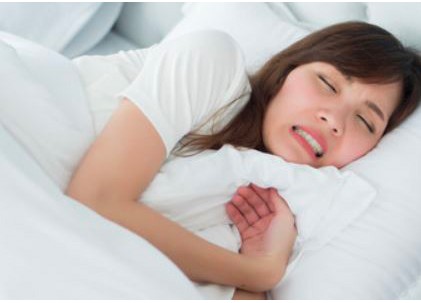What is bruxism? Grinding/clenching teeth

Bruxism, which manifests itself as grinding or clenching of the teeth, mainly at night (80% of cases), concerns around 10 to 15% of the French population, but is still the subject of many questions, particularly in this context. which concerns its causes and origins.
Bruxomaniacs mostly present the same symptoms: accelerated wear of the dental surface, pain in the cheeks, jaws, temples and in front of the ear, especially when waking up.
• How is bruxism treated?
We only treat the consequences of bruxism. The treatment will help prevent wear and pain. It is also possible to limit or prevent the effects of grinding (on natural teeth or on prostheses) by using orthoses (splints) which protect the dental arches at night and allow the muscles and joints of the jaw to relax.
On the other hand, behavioral management of stress may be necessary (relaxation techniques, sophrology, etc.) If the dental destruction is significant (whether it concerns infectious or aesthetic problems), restorations will have to be considered.
These are partly covered by Health Insurance. The use of botulinum toxin to relieve tension in the manducator muscles can also be considered in the presence of very significant pain. In certain cases, orthodontic treatment may be offered to optimize the positioning of the teeth.
(source: ufsbd)

.png)